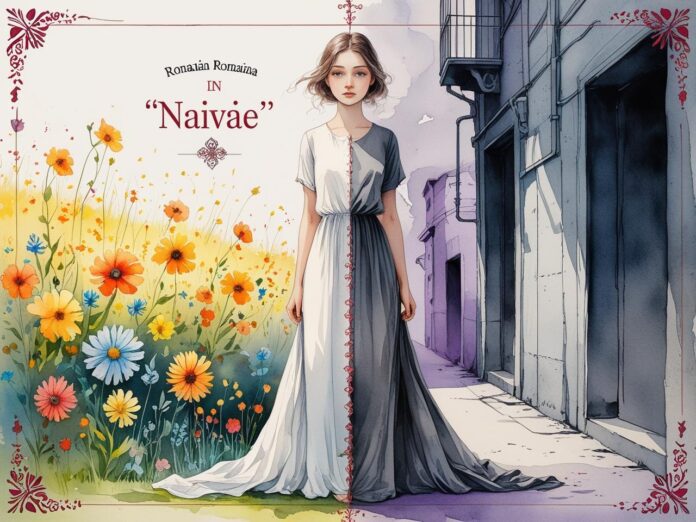Introduction to Naivă
In Romanian, the word naivă (feminine form of “naiv”) carries a depth of meaning that transcends simple definitions of naivety. It describes someone seen as innocent, trusting, or inexperienced—but its connotations shift dramatically based on context, tone, and social dynamics.
Is naivă a compliment or an insult? A sign of purity or a mark of gullibility? This article explores:
✅ Linguistic roots—Where does “naivă” come from?
✅ Cultural interpretations—How is it used in relationships, literature, and politics?
✅ Gender dynamics—Why is the feminine form more loaded than the masculine?
✅ Modern shifts—How has globalization changed its meaning?
By the end, you’ll understand why this term remains so powerful in Romanian communication.
What Does “Naivă” Mean?
At its core, naivă means:
-
Innocence – A lack of suspicion or cynicism.
-
Inexperience – Unfamiliarity with life’s harsh realities.
-
Idealism – Believing in fairness despite evidence otherwise.
-
Gullibility – Being easily deceived due to trust.
But its tone depends entirely on context:
| Context | Interpretation | Connotation |
|---|---|---|
| Romantic relationships | “She’s so naivă—it’s refreshing.” | Positive (authenticity) |
| Political debates | “His plan is naivă.” | Negative (unrealistic) |
| Literature | The “naivă heroine” triumphs through purity. | Admiring |
| Workplace | “Don’t be so naivă—they’ll take advantage.” | Critical |
Etymology: Where Does “Naivă” Come From?
The word traces back to:
-
Latin – Nativus (“natural, innate”)
-
French – Naïve (adopted during 19th-century Francophile influence in Romania)
-
Romanian – Grammatically gendered (naiv for masculine, naivă for feminine)
This linguistic journey reflects how innocence has been culturally framed—as something inherent (“natural”) rather than learned.
Psychological Perspectives on Naivety
Psychologists note that being naivă isn’t inherently bad. It often stems from:
🔹 Heuristic thinking – Assuming others act in good faith.
🔹 Limited life experience – Not yet encountering betrayal or manipulation.
🔹 Optimistic temperament – A tendency to focus on positive outcomes.
However:
-
In supportive environments, naivă traits (trust, openness) lead to happiness.
-
In manipulative settings, they can result in exploitation.
Naivă in Romanian Literature & Art
Classic Portrayals
-
Ion Luca Caragiale’s plays – Naivă characters contrast with cynical schemers.
-
Communist-era novels – Heroines maintain moral purity despite corruption.
Modern Reinterpretations
-
Feminist literature – Naivă women reclaim agency (e.g., choosing trust as strength).
-
Naive art (arta naivă) – Childlike wonder in paintings, seen as authentic.
Gender Dynamics: Why “Naivă” Hits Differently
Romanian culture often judges women more harshly for naivety:
-
A man called naiv might be seen as “noble” or “visionary.”
-
A woman called naivă risks being labeled “gullible” or “childish.”
Feminist critique: This double standard discourages women from asserting themselves, framing trust as a weakness.
Naivă in the Digital Age
Social media has reshaped the term’s use:
-
Self-deprecating memes – “Me thinking I’d get a raise this year… so naivă.”
-
Authenticity branding – Influencers market “naivă” as anti-cynicism.
-
Online debates – Calling an argument “naivă” shuts down discussion.
Is Naivă a Compliment or an Insult?
It depends on:
✔ Tone – Teasing vs. scornful.
✔ Relationship – Friends may say it affectionately; rivals use it to dismiss.
✔ Industry – In business, it’s often negative; in art, it can praise sincerity.
FAQs About “Naivă”
1. Is naivă always negative?
No—it can admire purity in personal contexts but criticize lack of realism in professional ones.
2. How is naivă different from optimism?
Optimism (optimistă) is conscious hope; naivă implies unquestioning trust.
3. Do other languages have an equivalent?
Yes, but Romanian’s naivă allows more positive interpretations than English’s “naive.”
4. Can naivety be strategic?
Yes! Some play naive to lower defenses in negotiations or social settings.
5. Is naivă generational?
Often—older Romanians may see youth optimism as naivă, while millennials reject cynicism.
Conclusion: The Power of “Naivă”
This small word reveals Romania’s cultural tensions—between trust and skepticism, idealism and pragmatism. Its meaning will keep evolving, but its emotional weight ensures it stays relevant.
As poet Nichita Stănescu wrote:
“To be naive is to see the world before it learned to hide.”
